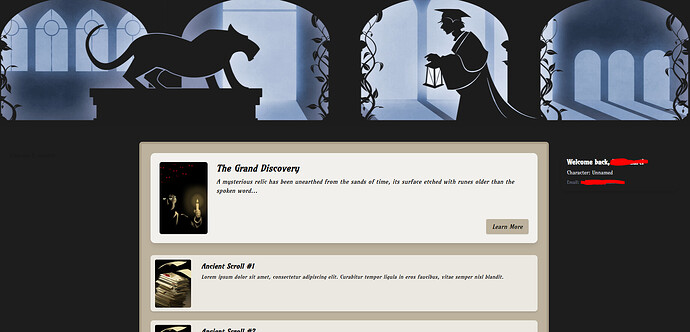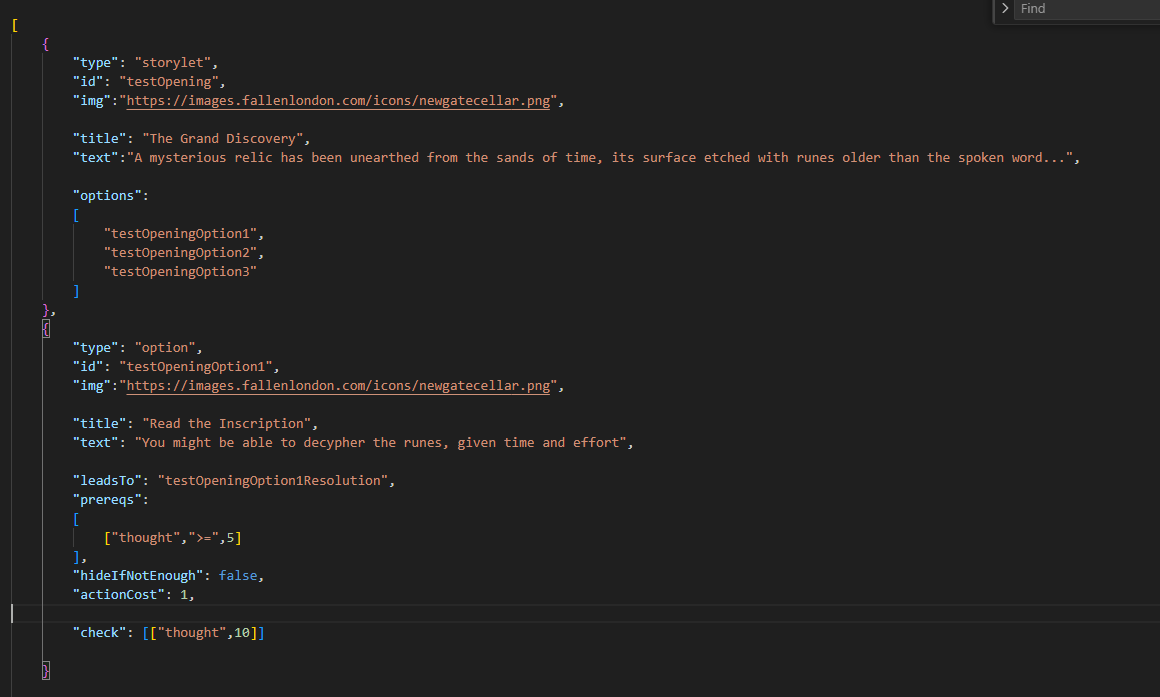A while ago I created the following topic, outlining some design considerations I was making if I were to commit to a narrative browser based QBN game: Design for prototyping a Fallen London-like browser game
I got several fantastic responses, some good ideas, and couldn’t wait to get to work. So, for lack of a better word, here is a bit of a dev log, followed by some open questions I still have regarding the design
What did I decide to make?
I’m calling it “Haemonculus”, a game set in a manapunk setting where magic has completely supplanted traditional technological fields. It was a long search for a good aesthetic, but I will likely be drawing a lot of inspiration from things like 17th century fashion and architecture, Venetian Carnival, MTG’s Ravnica, that kind of thing.
The image of an alchemist, and of a silver tree, which bears philosopher’s stones as it’s fruit
The society is one where magical houses and organisations hold onto their secrets firmly. It uses a Vancian Magic paradigm, where spells must be learned, and are forgotten upon casting them. Therefore, a shadow war of sorts is fought between houses to steal arcane secrets from each other, in order to expand their influence.
The player will take on the role of a Haemonculus, an alchemical creature, grown from a Philosopher’s Stone which are incapable of magic, yet are bound to these houses. For whatever reason, your philosopher’s stone has gone wayward after falling from the tree, and you are what amounts to a free person.
Your character is defined by Qualities, as is the basis for a QBN system. In order to make characters scale, while keeping their main skills unique to them, there is a level quality (which doesn’t always come into play, but is relevant for level-locking specific content), and several Skills qualities. Skills qualities are difficult to level up on their own, and generally require permanent decisions to be made about your character at the end of storylines. These are:
Mettle – physical prowess, martial ability and courage
Thought – intellect and knowledge
Eye – discernment and craftsmanship
Voice – communication and persuasion
Instinct – intuition, survival, and navigation
Guile – deception, cunning, hidden intent
Furthermore, I loved the Quirks in Fallen London, but I disliked how malleable they were as part of different grinds. To not copy Fallen London entirely, I wanted to introduce my own set, based on alchemical symbology and planetary temperaments:
Lunar – Introspective, Intuitive, Emotional, Nurturing, Reflective, Mysterious, Imaginative, Receptive, Dreamy
Solar – Charismatic, Radiant, Confident, Authoritative, Generous, Warm-hearted, Ambitious, Consistent, Goal-driven
Mercurial – Quick-witted, Adaptable, Intellectual, Curious, Communicative, Mischievous, Clever, Analytical, Inventive
Venusian – Harmonious, Sensual, Artistic, Diplomatic, Affectionate, Gracious, People-pleasing, Beauty-oriented, Pleasure-seeking
Martian – Assertive, Passionate, Energetic, Competitive, Bold, Confrontational, Action-oriented, Courageous, Hot-headed
Jovial – Optimistic, Expansive, Philosophical, Wise, Humorous, Benevolent, Lucky, Idealistic, Magnanimous
Saturnine – Disciplined, Responsible, Reserved, Pragmatic, Cautious, Somber, Structured, Serious, Enduring
This is the basic idea I have so far, but there’s obviously a lot of work to do. One idea I definitely want to play around with, is the fact that Haemonculae are used in this arcane shadow war to steal spells and assassinate mages, but I don’t want it to be the major focus of the game. I just feel it fits, because of Haemonculae being less sensitive to magic in general.
Progress so far
I admit I had to learn web-development for this, because I was mostly accustomed to Unity. So I taught myself web development in the week following my post, and this is where I am at. Note that I use a lot of Fallen London placeholders for the layout, and I have yet to really develop a style of my own.
Furthermore, I’m currently figuring out the data model for storylets, locations, options, etc. using JSON files, which would make it easier to develop the game using text documents, and can therefore be done anywhere using an iPad or small laptop.
What I could use some ideas or feedback for
Honestly, right now much of this is still vague ideas and setting up basic systems. I have never played many browser games, and I’m noticing I am drawing a lot of inspiration directly from Fallen London. I am intentionally diverging from it in a few key places, but the layout of the frontpage is very much me just trying to copy it.
I could use some ideas on what to do differently, or problems Fallen London has which I could solve. For example, @HanonO offered the idea of using locations and location decks more as ‘play spaces’, which is something I really liked
I am very much intending to work from this, divide the game into ‘open spaces’ (the marketplace, a college, etc.) with very clear rules and associated activites, and ‘closed spaces’ (a battle, crafting something, etc.) which must be performed to completion or escape. I am especially a fan of this idea:
It allows me to play around more with the idea that you are living and doing things, and sometimes you just run out of time. I like that from a roleplaying point of view, and it even allows me to simulate the passage of days, if you don’t mind me using this mechanic.
This is all to say, I need some ideas, and fun ways to make it a strong roleplaying experience. I would appreciate any and all ideas!



